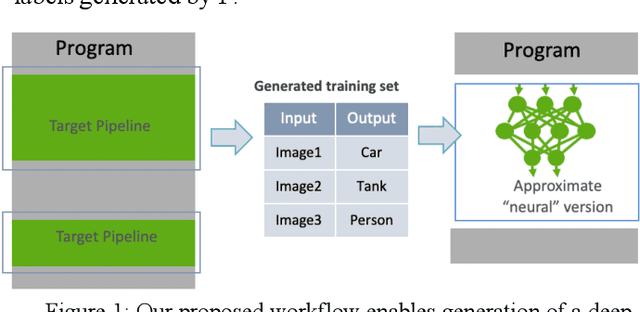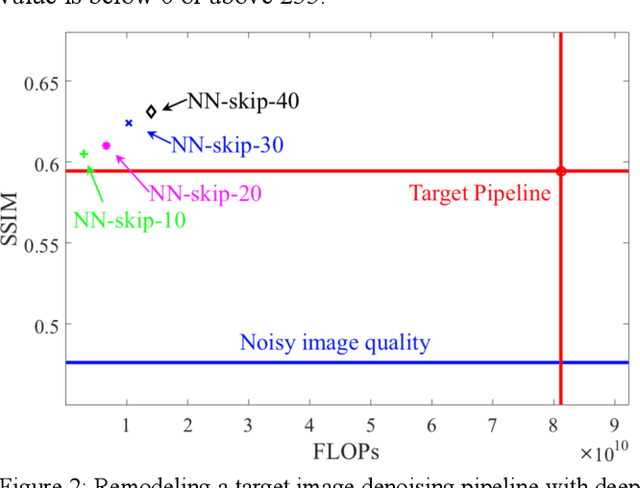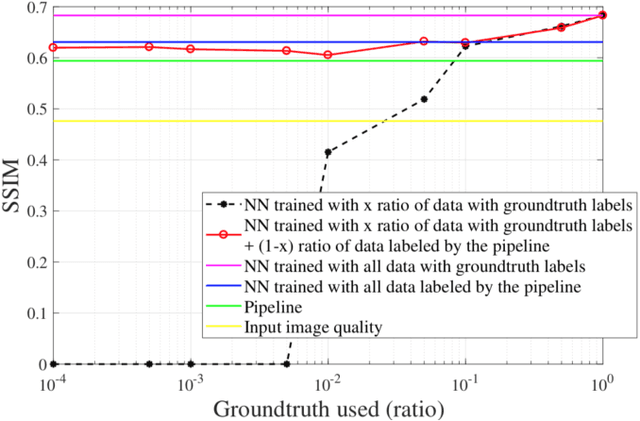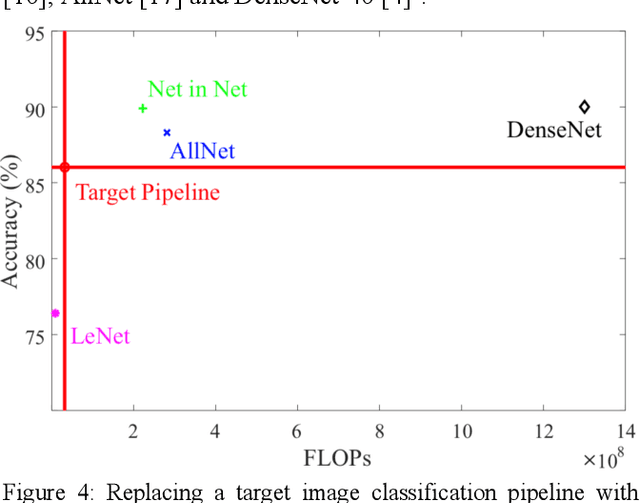Bootstrapping Deep Neural Networks from Image Processing and Computer Vision Pipelines
Paper and Code
Nov 29, 2018



Complex image processing and computer vision systems often consist of a "pipeline" of "black boxes" that each solve part of the problem. We intend to replace parts or all of a target pipeline with deep neural networks to achieve benefits such as increased accuracy or reduced computational requirement. To acquire a large amounts of labeled data necessary to train the deep neural network, we propose a workflow that leverages the target pipeline to create a significantly larger labeled training set automatically, without prior domain knowledge of the target pipeline. We show experimentally that despite the noise introduced by automated labeling and only using a very small initially labeled data set, the trained deep neural networks can achieve similar or even better performance than the components they replace, while in some cases also reducing computational requirements.
 Add to Chrome
Add to Chrome Add to Firefox
Add to Firefox Add to Edge
Add to Edge